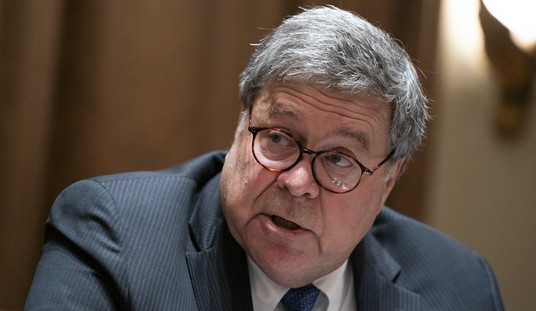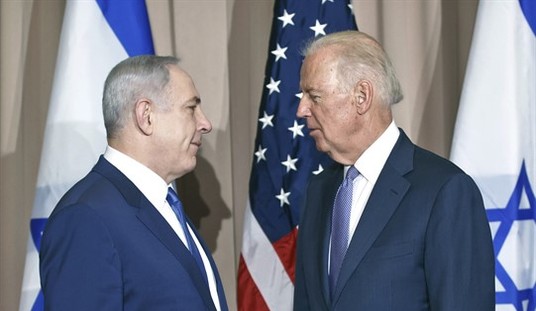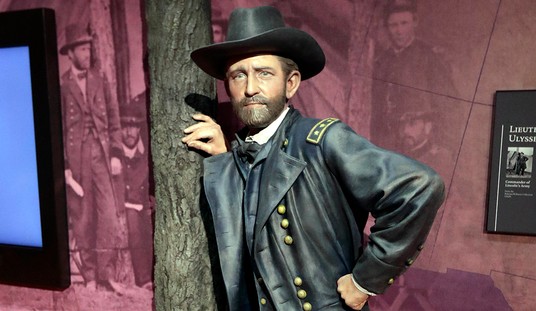Foreign Policy’s Cable reports that “the State Department has begun coordinating with Syria’s neighbors to prepare for the handling of President Bashar al-Assad’s extensive weapons of mass destruction if and when his regime collapses, The Cable has learned.”
This week, the State Department sent a diplomatic demarche to Syria’s neighbors Iraq, Jordan, Lebanon, and Saudi Arabia, warning them about the possibility of Syria’s WMDs crossing their borders and offering U.S. government help in dealing with the problem, three Obama administration officials confirmed to The Cable. For concerned parties both inside and outside the U.S. government, the demarche signifies that the United States is increasingly developing plans to deal with the dangers of a post-Assad Syria — while simultaneously highlighting the lack of planning for how to directly bring about Assad’s downfall. …
The State Department declined to provide access to any officials to discuss the private diplomatic communication on the record, such as the author of the demarche Assistant Secretary of State for International Security and Nonproliferation Tom Countryman. In a meeting with reporters earlier this year, Countryman expressed confidence that the United States knows where Syria’s WMD stockpiles are, but warned that they could become a very serious security issue for Syria and the region going forward.
“We have ideas as to the quantity and we have ideas as to where they are,” Countryman said. “We wish some of the neighbors of Syria to be on the lookout… When you get a change of regime in Syria, it matters what are the conditions — chaotic or orderly.”
The acknowledgement of the existence of WMDs in Syria may rewrite history’s understanding of the invasion of Iraq in 2003. For the present, however, the Cable report raises the question of what sort of “plans” the administration could be developing for dealing with Syria? What is to prevent such weapons from migrating to Iraq for example? Surely not the forces which the administration has withdrawn?
The main problem with Iraq 2003, it may now turn out, was how the Bush administration dealt with the WMD threat and not over whether they existed. The vilification of the Iraq operation may have been over a fundamental a violation of the international diplomatic consensus rather than the “mistake” over the presence of WMDs.
The proper way to deal with WMD threats has now been revealed as including the use of pariahs, like Israel, maneuvers in the Security Council, or whatever unnamed diplomatic plans Hillary Clinton is hatching. Force is not disallowed, as long as it is applied by those who are already outside the pale. Readers will recall Operation Orchard in late 2007, when Israeli strike aircraft hit a “nuclear” target in the Syrian desert.
Operation Orchard was an Israeli airstrike on a nuclear reactor in the Deir ez-Zor region of Syria carried out just after midnight (local time) on September 6, 2007. The White House and Central Intelligence Agency (CIA) later confirmed that American intelligence had also indicated the site was a nuclear facility with a military purpose, though Syria denies this. An International Atomic Energy Agency (IAEA) investigation reported evidence of uranium and graphite and concluded that the site bore features resembling an undeclared nuclear reactor. IAEA was initially unable to confirm or deny the nature of the site because, according to IAEA, Syria failed to provide necessary cooperation with the IAEA investigation Syria has disputed these claims. In April 2011, the IAEA officially confirmed that the site was a nuclear reactor.
There was remarkably little outcry over that. Because that’s the way to do it. Western diplomats don’t mind getting the despised Jew to do the dirty work. They can always blame him afterward from their high moral perch. Otherwise they can lead from behind, through organizations like the “Friends of Syria”, which is a way of negotiating regime change, or perhaps effecting it, in a multilateral way.
Representatives of more than 60 nations and organizations called on Syria’s government on Friday to halt its attacks on besieged cities and asked the United Nations to begin planning for a peacekeeping force, even as prospects for a diplomatic way out of the conflict appeared dim. …
The international meeting — a gathering of what was called the “friends of the Syrian people” — was intended to demonstrate international solidarity against the government of President Bashar al-Assad and his close allies, namely Russia and China, which faced blistering criticism from Secretary of State Hillary Rodham Clinton and other attendees.
This might also explain the curious lack of opposition to notions that Israel should carry out an attack on Iranian nuclear facilities which were developed in secret through ‘deceit’ as leaked telexes now show. Force is not disallowed as long as the hitmen from Tel Aviv do it. To get the Americans involved, well the Five Families — or whatever the diplomats call the ruling diplomatic coalition — don’t sanction that stuff.
From the very beginning the Bush Administration’s operation against Saddam Hussein was also a declaration of war — or independence, depending on your preference — against the system.
Bush may have calculated that the September 11, 2001 attacks had finally given him a free hand to deal with long-festering threats in the most expeditious way. But he was probably wrong. The system bent, but never broke. Ultimately it destroyed him and was probably relieved to see the accession of Barack Obama, who seems determined to play the traditional Game demanded by the mustache Petes to the end.
But both the Arab Spring and the Iranian nuclear question suggest that the international diplomatic consensus doesn’t work; it is only making the problems of the region worse. Unless the diplomatic system can avert the increasing march towards a regional civil war and the nuclearlization of the region, then a catastrophe looms which will make the hostilities in Iraq seem like a kindergarten party. It may overtake not only the Middle East, but the whole of the Mediterranean and the Caucasus.
Let us see how history judges Barack Obama. One thing’s for sure. If he can’t stop the march of the region towards conflict, then future generations will wonder whether the didn’t sell out a generation in exchange for a message of potage. History has, however, already judged one of his most famous publicists very harshly. Perhaps the idea Hope and Change is still credited by some, but its posters are clearly plagiarized.
The creator of the Barack Obama ‘HOPE’ poster has pleaded guilty to criminal contempt for lying about the photo he used to create the image.
Shepard Fairey said he made a ‘terrible decision’ in 2009 to destroy some documents and fabricate others in a lawsuit about an Associated Press photograph he relied upon to make the poster.
Fairey entered the plea in federal court to the misdemeanor charge, which carries a maximum potential penalty of up to six months in prison.
The Daily Caller‘s Jim Treacher wrote “what a perfect symbol of the Obama era.” But that is unfair. It would be more accurate to say that Fairey’s fall is symbolic of an era, a time when spin could cover for fact.
How to Publish on Amazon’s Kindle for $2.99
The Three Conjectures at Amazon Kindle for $1.99
Storming the Castle at Amazon Kindle for $3.99
No Way In at Amazon Kindle $3.99, print $9.99










Join the conversation as a VIP Member